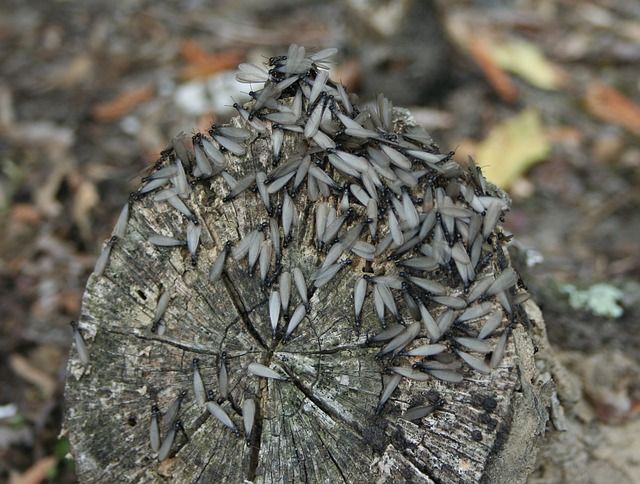Homes in southwestern cities like Tucson and Phoenix are especially prone to termite infestations. A termite colony can devour all wooden structures in a home, including wood furniture, in three to five years. Although these bugs are highly destructive, their objective is not to hurt humans. Rather, they want a steady source of food. However, they can be harmful to humans as a byproduct of pursuing their goals. Here are five health hazards termites pose as they go about the business of eating your house.
1. Bites and Stings
A soldier termite can bite or sting you if it feels threatened or is handled. A termite bite won’t kill you, but it can itch, swell, burn and feel very painful, especially if you are predisposed to allergic reactions.
2. Allergies and Asthma
Termite nests release particles and dust that can be spread about the home via your heating and air conditioning systems. These airborne contaminants can be irritating to those with asthma or allergies. Termite saliva and droppings can also cause allergic reactions in sensitized individuals or those with compromised immune systems.
3. Contact Dermatitis
Termite colonies generate pellets, commonly referred to as frass, that are wood-colored and look like sawdust. When frass touches the skin, it can cause contact dermatitis and other allergic reactions.
4. Mold Spores
Mold can appear in homes where these bugs have caused wooden structures to decompose. Termites like damp, humid environments where mold tends to grow, and when termites crawl or chew through wood, they spread mold as they go. Mold is a fungus that generates spores. Spores can collect in your indoor air, and they can create health problems when inhaled.
Mold spores can cause migraine headaches, weakness, cough, sore throat, burning eyes and a runny nose. Certain types of mold spores can cause fungal infections like histoplasmosis and conditions like candida and hives. When exposed to mold spores, those with asthma can develop an illness called bronchiopulmonary aspergilloma which can produce symptoms of cystic fibrosis. Molds can even release toxic compounds that cause neurological problems such as memory loss.
5. Do-It-Yourself Termite Treatment
Trying to treat a termite infestation yourself is asking for trouble. Termite pesticides, if applied correctly, are not harmful to humans. However, they can be and often are harmful to humans in the hands of an amateur.
Pest control experts use specialized termite treatments that wipe out colonies and keep the bugs from coming back. To avoid an infestation or to make sure that you don’t already have one, schedule a termite inspection for your Phoenix or Tucson home every year with a certified pest control company like Burns Pest Elimination.
